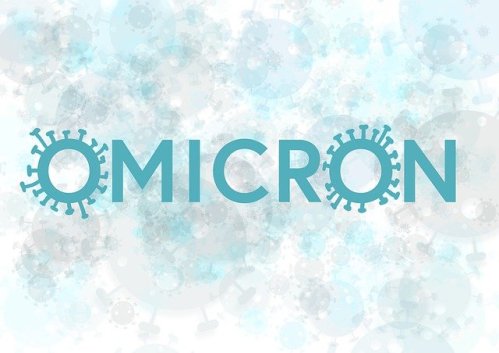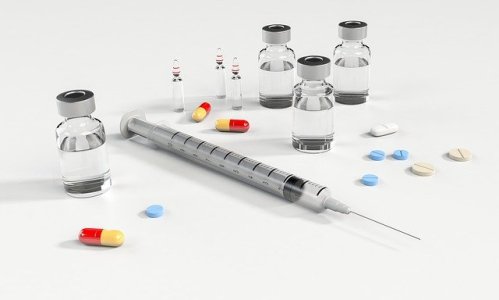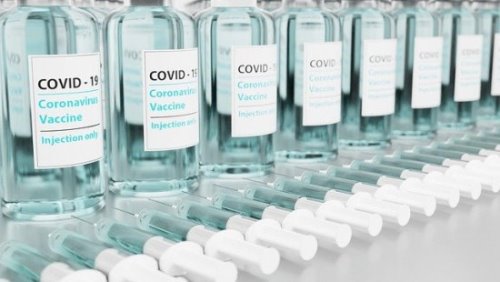You may feel some concern about the newly discovered coronavirus variant – omicron. More so, the huge negative impact of the coronavirus globally may make you wary. Scientists and epidemiologists are still learning more about the variant. This is while health institutions confirm new cases. However, you can read on for 6 things you should know about omicron variant.
Background on the Omicron Variant
Most of the evolutions of the COVID-19 virus are insignificant. Occasionally, a variant needs closer scrutiny. The coronavirus has variants like Delta, Gamma, Beta, Alpha, Mu, and Omicron.

the-omicron-variant
The new variant – B. 1.1.529 omicron – gets its name from the Greek letter. The WHO arrived at the name using best practices for naming new diseases.
First detected in Southern Africa and Botswana, it has a high number of mutations that possibly make it more transmissible. Between Nov. 20 to 27, the number of cases of coronavirus per 100,000 people detected in South Africa daily was up to 50. This is as reported by The Washington Post’s virus tracker.
Subsequently, over two dozen countries including the United States and Australia have reported cases. According to the WHO, the likelihood of the omicron variant continuing its spread is high.
Consequently, several countries have started imposing travel restrictions not just on flights to and from South Africa but international flights as well. For instance, the United States has required all inbound international travelers to have a negative coronavirus test no more than one day before departure.
Number 1: The new variant is unique
The omicron variant is unique in several ways.
First, the Omicron represents a new lineage of the coronavirus. This is due to its unique generic profile.
Second, it has a greater number of mutations. For instance, the spike protein – the part of the virus that attaches itself to human cells and gains entry – has over 30 mutations. as a result, there is a higher potential for omicron to be more transmissible and defy immune defenses.
Moreover, vaccines in this situation may become less effective. In the same vein, WHO has indicated that preliminary evidence shows a higher risk of reinfection compared with other variants.
Number 2: It can be quickly identified in labs
Diagnostic labs can quickly identify the omicron variant, B. 1.1.529 using a particular PCR assay. Moreover, increased testing (COVID-19 tests) can help to identify cases of omicron quickly.
Number 3: The severity of the omicron variant is yet unknown
This is understandable. After all, experts are releasing more papers on the severity of the alpha variant. Similarly, they are doing more work to ascertain delta’s severity. Surely, symptoms would have to be studied in a larger subset of people.
Furthermore, other variables would have to be considered. These include the health measures applied, the age of the patient, and the frequency of cases in the area. However, it is clear that masks would be effective against omicron. In the same vein, vaccines will work even if they may not be as effective.
Number 4: Further studies needed for effects and treatments

Due to the relatively small number of cases, the illness caused by omicron may be difficult to know. Physicians in South Africa have reported initial patients with mild symptoms, and younger adults having moderate to severe disease.
These early reports suggest the symptoms are flu-like and include fatigue, body ache, and headache. In addition, there may be reports of scratch throat, cough, or a dry cough that is intermittent.
However, experts do remark that initial outbreaks seem to be more with younger adults who may be less vulnerable to severe infection. In addition, the time lag before infections progress to severe disease implies that impact on hospitalizations can only be expected in the next few weeks.
Likewise, we are yet to know the impact of therapeutics (such as antivirals and monoclonal antibodies for the treatment of covid-19) on omicron. Currently, there are experiments to examine the impact of monoclonal antibody treatments.
Number 5: Vaccines can help

Generally, vaccines can help prevent the formation of more infectious variants. After all, it has been established that vaccines and boosters provide a level of protection against severe diseases with variants such as delta. Thus, boosters at high enough levels are likely to offer at a minimum, some level of cross-protection.
The reason for this expectation is that vaccines stimulate both antibodies and other immune cells. In turn, these antibodies and immune cells attack virus-infected cells. This response is not blunted by mutations to the spike protein. As such, this can help prevent serious illness and death.
Consequently, health experts promote booster shots as a way of increasing antibody levels. This is even more important because of the potential for immunity to wane six months or more after vaccination. As such, of the 6 things you should know about omicron variant, this point is quite important
Number 6: You can stay safe
Omicron is a COVID-19 variant. Therefore, you still need to take the same safety measures. Keep wearing a mask in public areas. Avoid large crowds. Continue regular washing of your hands. If you have symptoms, get tested. Undergo self-isolation if you test positive for the virus.
In addition, the emergence of the omicron variant further emphasizes the importance of vaccination. After vaccination, you should get your booster after the required period of time.
WHO’s action plan for countries
There is a need to understand the omicron variant. Countries should increase surveillance and sequencing of the virus. Furthermore, they should share data on individual cases and outbreaks to public databases. This will improve global monitoring.
Likewise, countries need to use resources to understand more on the characteristics and effects of omicron. This should be done with the aim of determining the effectiveness of existing vaccines and treatments. More so, countries have to share vaccines and treatments such that essential aid can be provided to countries suffering from economic repercussions.
Vaccines have to be provided to those eligible especially at-risk populations.
In the same vein, countries need to continue providing economic relief to communities to facilitate easy isolation.
Wrapping up
Your first step to keeping yourself safe is to keep informed. This includes reading up on information such as 6 things you should know about omicron variant. Thereafter, you should take preventive action as suggested. Practice safety measures. It is good to get tested and vaccinated. Keep yourself updated and follow health recommendations.





